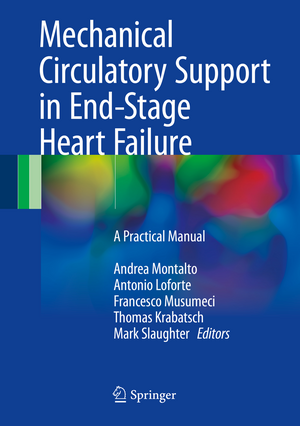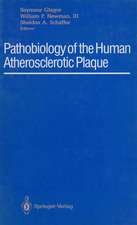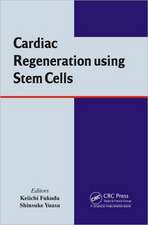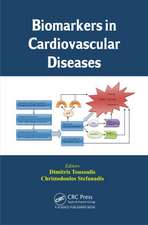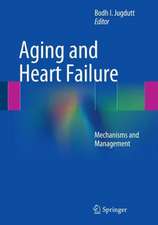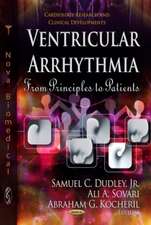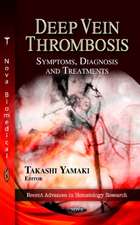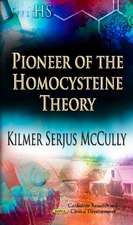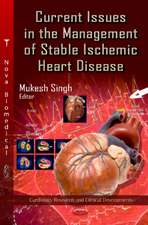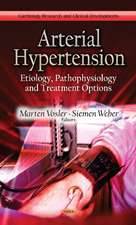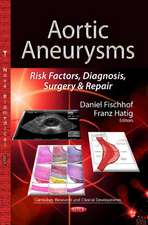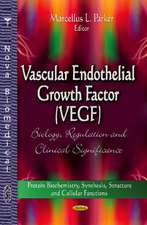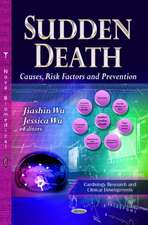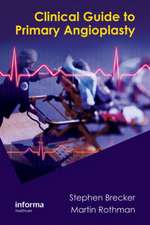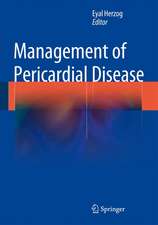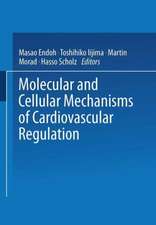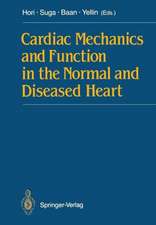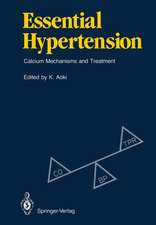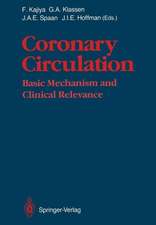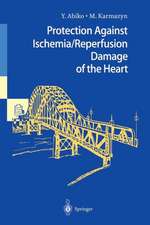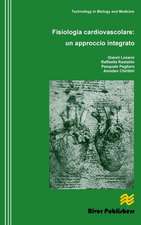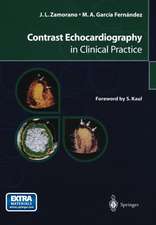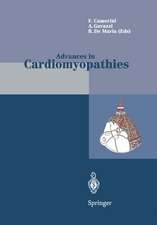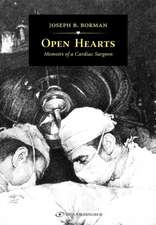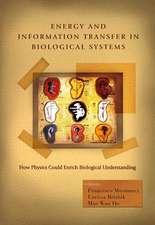Mechanical Circulatory Support in End-Stage Heart Failure: A Practical Manual
Editat de Andrea Montalto, Antonio Loforte, Francesco Musumeci, Thomas Krabatsch, Mark S. Slaughter Contribuţii de Cristiano Amarellien Limba Engleză Hardback – 24 iul 2017
| Toate formatele și edițiile | Preț | Express |
|---|---|---|
| Paperback (1) | 1066.83 lei 38-45 zile | |
| Springer International Publishing – 13 aug 2018 | 1066.83 lei 38-45 zile | |
| Hardback (1) | 1640.63 lei 3-5 săpt. | |
| Springer International Publishing – 24 iul 2017 | 1640.63 lei 3-5 săpt. |
Preț: 1640.63 lei
Preț vechi: 1726.98 lei
-5% Nou
Puncte Express: 2461
Preț estimativ în valută:
313.93€ • 327.77$ • 259.82£
313.93€ • 327.77$ • 259.82£
Carte disponibilă
Livrare economică 14-28 martie
Preluare comenzi: 021 569.72.76
Specificații
ISBN-13: 9783319433813
ISBN-10: 3319433814
Pagini: 644
Ilustrații: XXIII, 615 p. 234 illus., 208 illus. in color.
Dimensiuni: 178 x 254 x 32 mm
Greutate: 1.45 kg
Ediția:1st ed. 2017
Editura: Springer International Publishing
Colecția Springer
Locul publicării:Cham, Switzerland
ISBN-10: 3319433814
Pagini: 644
Ilustrații: XXIII, 615 p. 234 illus., 208 illus. in color.
Dimensiuni: 178 x 254 x 32 mm
Greutate: 1.45 kg
Ediția:1st ed. 2017
Editura: Springer International Publishing
Colecția Springer
Locul publicării:Cham, Switzerland
Cuprins
PART I: PREOPERATIVE EVALUATION – 1 Physiopathology and Fate of End-Stage Cardiac Heart Failure in the era of Mechanical Circulatory Support.- 2 The Advantage of Mechanical Solution: Results of Clinical Trials to Date.- 3 Mechanical Circulatory Support Candidate Selection Criteria.- 4 Preoperative Assessment and Clinical Optimization.- 5 Preoperative Evaluation of Right Ventricular Function.- 6 High INTERMACS profiles: Medical vs. Mechanical Circulatory Support treatment.- 7 Low INTERMACS Profiles: which Strategies? (Temporary ECMO or TAH support; Temporary mid-term Paracorporeal Ventricular Assisted Device Support; Primary long-term Ventricular Assisted Device placement).- 8 From BTT to DT Strategy: USA and Europe views.- 9 Mechanical Circulatory Support as a Bridge to Recovery.- 10 Mechanical Circulatory Support as a Bridge to Candidacy.- PART II: INTRAOPERATIVE TIPS AND PITFALLS – 11 Pulsatile vs. Continuous Flow pumps: Engineering and Clinical Considerations.- 12 Which Approach? Traditional vs. MICS.- 13 To Pump or not to Pump: the Role of Cardio-Pulmonary Bypass or ECMO.- 14 Techniques for Inflow Cannula Placement.- 15 Techniques for Outflow Cannula Placement.- 16 Techniques for Driveline Positioning.- 17 Percutaneous Devices: Options.- 18 Paracorporeal Biventricular Devices.- 19 Biventricular Implantable Continuous flow pumps.- 20 The Total Artificial Heart.- 21 Mechanical Circulatory Support in Pediatric Population.- 22 Concomitant Cardiac Surgery during Ventricular Assisted Device Placement: When is It too Much?.- 23 Pump Removal after Recovery.- 24 Intraoperative anesthesiological monitoring and management.- 25 Intraoperative right ventricular failure management.- PART III: POSTOPERATIVE RECOMMENDATIONS – 26 Physiotherapy and Rehabilitation Management in Ventricular Assisted Device Patients.- 27 Coagulation Monitoring.- 28 Adverse events management: Ischemic and Haemorragic Stroke.- 29 Adverse events management: Gastro-intestinal Bleeding.- 30 Adverse events management: Pump Thrombosis.- 31 Adverse events management: Infectious Complications.- 32 Adverse events management: AVW Syndrome.- 33 Adverse events management: Concomitant non-Cardiac Surgery during MCS: Management of Therapy.- 34 Pump and Equipment Failure: How to Behave.- 35 The Outpatient Care: The Role of Ventricular Assisted Device coordinator and the Remote Monitoring.- PART IV: MISCELLANEA - 36. Miniaturization and Future Technologies.- 37 ReliantHeart – Forward Compatibility and TET.- 38 The BIVACOR project.- 39 Potential of CARMAT in the Future.- 40 The ReinHeart Solution.- 41 Ethical and Psychological aspects of long-term MCS.- 42 Health-Economic Aspects of Mechanlical Circulatory Support Therapy.- 43 The Mechanical Circulatory Support Registries: Role and Perspectives.- 44 Conclusions.
Notă biografică
Dr. Antonio Loforte, MD, PhD
Dr. Antonio Loforte received his Medical Degree from Catania University School of Medicine, Italy, and completed his cardiothoracic surgery residency at the University of Bologna, S. Orsola-Malpighi Hospital, Italy, after a period of training at St. Antonius Ziekenhuis, Nieuwegein, Utrecht, The Netherlands. He completed a two-year cardiothoracic and transplantation surgery fellowship at the Deutsches Herzzentrum Berlin, Germany, and then joined the Michael E. DeBakey Department of Surgery, Division of Tranplant and Assist Devices, Baylor College of Medicine, Houston, Texas, USA, and the Klinic fur Herzchirurgie, Universitat Leipizig, Herzzentrum, Leipizig.
He became permanent staff surgeon at S. Camillo Hospital, Department of Cardiac Surgery and Transplantation, Rome, Italy, and currently moved back as permanent staff surgeon to S. Orsola-Malpighi Hospital, Bologna University, Department of Cardiovascular Surgery and Transplantation, Italy. Dr. Loforte’s main clinical areas of interest are Heart Tranplantation, Mechanical Circulatory Support therapy, Aortic Surgery, Minimally-Invasive Heart Surgery, OPCABG and new technologies in cardiac surgery.
Dr. Loforte’s main scientific and research areas of interest are Organ Transplantation and Mechanical Circulatory Support (ECMO, VAD, TAH).
He got a European PhD Label in ‘Organ Transplantation’ awarded by Rome Tor Vergata University, Italy, and the dissertation title has been: "The role of Mechanical Circulatory Support in end-stage heart failure as bridge or alternative to Heart Transplantation". He got, by time, 3 International Awards by such Societies as SITO, ASAIO and EACTS, respectively, on clinical reaserch studies focused on Mechanical Circulatory Support therapy.
He has published over 60 papers in peer-reviewed Journals, as well as 5 book chapters and he is author of more then 170 abstracts (communications) for International meetings. He is a reviewer for 19 International Journals and on the Editorial Board of 8.
He is active member of SICCH, EACTS, ASAIO, ISHLT, RHICS, STS, EUROMACS.
Dr. Cristiano Amarelli, MD
Dr. Amarelli, is a cardiac nonacademic surgeon involved in the field of heart transplantation during the last 15 years with a strong scientific activity in the field of transplantation, mechanical valve and mechanical circulatory support.
Born in Naples he graduated in Naples at the Second University of Naples where he completed in 2003 his training in cardiovascular surgery.
He is an active promotor of heart donation for the European Cardiothoracic Transplant Association (ECTTA) stimulating and coordinating the writing process of the European Consensus Conference on thoracic donors, takes active part to the editorial board and to the historic committee of the ASAIO, and is active reviewer for many journals and international meetings.
Dr. Antonio Loforte received his Medical Degree from Catania University School of Medicine, Italy, and completed his cardiothoracic surgery residency at the University of Bologna, S. Orsola-Malpighi Hospital, Italy, after a period of training at St. Antonius Ziekenhuis, Nieuwegein, Utrecht, The Netherlands. He completed a two-year cardiothoracic and transplantation surgery fellowship at the Deutsches Herzzentrum Berlin, Germany, and then joined the Michael E. DeBakey Department of Surgery, Division of Tranplant and Assist Devices, Baylor College of Medicine, Houston, Texas, USA, and the Klinic fur Herzchirurgie, Universitat Leipizig, Herzzentrum, Leipizig.
He became permanent staff surgeon at S. Camillo Hospital, Department of Cardiac Surgery and Transplantation, Rome, Italy, and currently moved back as permanent staff surgeon to S. Orsola-Malpighi Hospital, Bologna University, Department of Cardiovascular Surgery and Transplantation, Italy. Dr. Loforte’s main clinical areas of interest are Heart Tranplantation, Mechanical Circulatory Support therapy, Aortic Surgery, Minimally-Invasive Heart Surgery, OPCABG and new technologies in cardiac surgery.
Dr. Loforte’s main scientific and research areas of interest are Organ Transplantation and Mechanical Circulatory Support (ECMO, VAD, TAH).
He got a European PhD Label in ‘Organ Transplantation’ awarded by Rome Tor Vergata University, Italy, and the dissertation title has been: "The role of Mechanical Circulatory Support in end-stage heart failure as bridge or alternative to Heart Transplantation". He got, by time, 3 International Awards by such Societies as SITO, ASAIO and EACTS, respectively, on clinical reaserch studies focused on Mechanical Circulatory Support therapy.
He has published over 60 papers in peer-reviewed Journals, as well as 5 book chapters and he is author of more then 170 abstracts (communications) for International meetings. He is a reviewer for 19 International Journals and on the Editorial Board of 8.
He is active member of SICCH, EACTS, ASAIO, ISHLT, RHICS, STS, EUROMACS.
Born in Naples he graduated in Naples at the Second University of Naples where he completed in 2003 his training in cardiovascular surgery.
He is an active promotor of heart donation for the European Cardiothoracic Transplant Association (ECTTA) stimulating and coordinating the writing process of the European Consensus Conference on thoracic donors, takes active part to the editorial board and to the historic committee of the ASAIO, and is active reviewer for many journals and international meetings.
During last years undertake to a national network looking to expand the adoption of mechanical circulatory support in Italy under the auspices of National Transplant Center and of the Italian Society of Cardiac Surgery.
Dr. Andrea Montalto, MD.
Dr. Andrea Montalto obtained his Medical Degree at “Federico II” University School of Medicine in Neaples, Italy.
After completed the residency in cardiac surgery at the University Federico II, he moved to Rome to complete the training by attending the cardiac surgery center at S. Camillo Hospital.
Since 2006 he became permanent staff surgeon at S. Camillo Hospital, Department of Cardiac Surgery and Transplantation, Rome, Italy,
Dr. Montalto has shown particular interest in the field of surgical treatment of advanced heart failure becoming familiar in the management of patients implanted with mechanical devices.
Dr.Montalto, since 2012, has acquired the role of head of the VAD program at the center of cardiac surgery at the San Camillo Hospital.
He is active member of SICCH, EUROMACS.
Dr. Andrea Montalto obtained his Medical Degree at “Federico II” University School of Medicine in Neaples, Italy.
After completed the residency in cardiac surgery at the University Federico II, he moved to Rome to complete the training by attending the cardiac surgery center at S. Camillo Hospital.
Since 2006 he became permanent staff surgeon at S. Camillo Hospital, Department of Cardiac Surgery and Transplantation, Rome, Italy,
Dr. Montalto has shown particular interest in the field of surgical treatment of advanced heart failure becoming familiar in the management of patients implanted with mechanical devices.
Dr.Montalto, since 2012, has acquired the role of head of the VAD program at the center of cardiac surgery at the San Camillo Hospital.
He is active member of SICCH, EUROMACS.
Prof. hc. Dr. med. habil. Thomas Krabatsch
Thomas Krabatsch, MD, PhD is Senior Cardiac Surgeon at Deutsches Herzzentrum Berlin. Dr. Krabatsch has expertise in the surgical treatment of a variety of cardiovascular diseases in adults including severe diffuse coronary artery disease, valvular heart diseases, mechanical circulatory support and transplantation. He is the Director of Deutsches Herzzentrum Berlin's mechanical circulatory support team, which has experience with over 2,800 implants. Dr. Krabatsch's basic science research interests include endothelial growth factors for coronary disease and gene transfer, laser therapy and cell therapy. He is Member of the ISHLT, EACTS, DGTHG, German society for Gene Therapy, BBGHK, and author or coauthor of more than 150 scientific articles. Dr. Krabatsch also has relations with several universities and cardio-surgical hospitals in Eastern Europe, such as Russia, Belarus, Bosnia and Hungary. He is Honorary Professor in one of Russia's largest medical schools.
Textul de pe ultima copertă
This book is a detailed practical guide to the use of ventricular assist devices and total artificial hearts to provide mechanical circulatory support (MCS) in patients with end-stage heart failure. It explains why MCS may be indicated, which patients require MCS, when and how to implant ventricular assist devices or a total artificial heart, and how to avoid potential complications of MCS. Management throughout the period of care is described, from preimplantation to follow-up, and both typical and atypical cases are discussed. The text features numerous helpful tips and tricks relating to surgical and nonsurgical management and is supported by a wealth of high-quality illustrations that document the preoperative evaluation and implantation techniques. Heart transplantation remains the gold standard for the treatment of patients suffering from end-stage heart failure, but the shortage of donors has led to an increase in the use of MCS. This book will assist all physicians, and especially cardiologists and anesthesiologists, who are involved in the care of these patients.
Caracteristici
Explains when and how to implant ventricular assist devices or a total artificial heart
Provides clear guidance on patient selection and evaluation
Includes numerous surgical and nonsurgical tips and tricks
Describes how to avoid and manage complications
Provides clear guidance on patient selection and evaluation
Includes numerous surgical and nonsurgical tips and tricks
Describes how to avoid and manage complications
